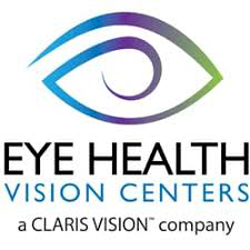DARTMOUTH – People with vision problems caused by irregularly shaped corneas received a treatment alternative to corneal transplants in April 2016 when the U.S. Food and Drug Administration approved Avedro, a cornea-stiffening treatment, now available at Eye Health Vision Centers.
The development puts the procedure within 40 minutes of Providence, saving patients in Southern New England the trouble of travel to Boston or Connecticut for the lower-cost, less-painful treatment.
Fusun Fowler, an ophthalmologist at Eye Health Vision Centers, said the procedure will be of significant benefit to patients diagnosed with keratoconus – thinning and bulging of the cornea that obscures vision, according to the American Academy of Ophthalmology.
Fowler said people are typically diagnosed with the degenerative genetic disease in their teens.
The 30-minute procedure involves using Avedro’s KXL system and riboflavin eye drops to stiffen the cornea, halting the progression of keratoconus. Patients with the disease typically notice their vision worsen because their cornea progressively thins and weakens.
The Avedro procedure uses a riboflavin vitamin solution to strengthen the eye, Fowler said. The process starts with numbing drops on the eyes and a speculum to hold the eyelids apart. A thin layer of the cornea, called the epithelium, is lightly scratched to allow the cornea to absorb the vitamin, riboflavin.
Next, a UV light is shone into the eye. The process ends with a contact-lens “Band-Aid” and eye drops.
“The riboflavin-soaked cornea becomes much stronger,” Fowler said.
Prior to the Avedro procedure, treatment would involve using rigid, often uncomfortable contact lenses that would flatten and smooth the shape of the cornea to allow light to be properly refracted. If the condition worsened, some patients needed a corneal transplant procedure.
“Until now, patients had few options to help with their vision challenges and no therapeutic treatment for certain sight-threatening conditions,” said Dr. Kenneth Kenyon at the center. “Corneal cross linking gives patients a therapeutic option that can limit the progression of keratoconus and ectasia.”
“With more than 160,000 new cases in the United States every year and thousands of New England residents potentially affected by these conditions, patients east of Hartford and south of Boston now have better access to a therapeutic treatment that has been rigorously tested and approved,” said Fowler.
“But most importantly, this technology provides patients with a financially viable option to treat the condition at a fraction of the cost of a transplant,” said Kenyon.
Fowler said the procedure costs about $3,000, while a corneal transplant would cost that much for the cornea tissue alone.
Rob Borkowski is a PBN staff writer. Email him at Borkowski@PBN.com.












